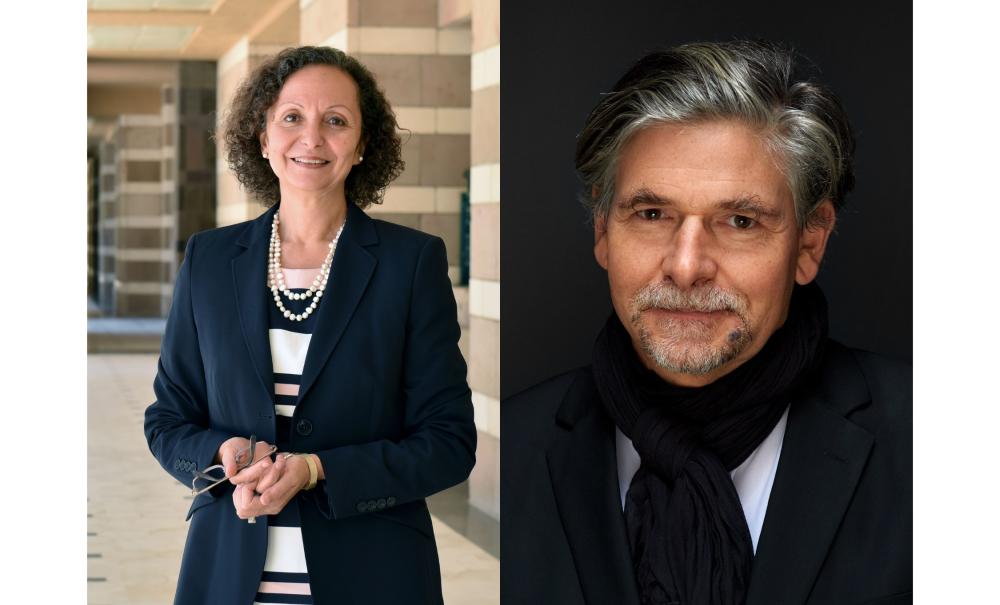
Dean Noha El-Mikawy chats with Jan-Werner Mueller
Jan-Werner Mueller, professor of Social Sciences at Princeton University, co-founded the European College of Liberal Arts, Berlin. He is an author of several books of political theory and intellectual history. His latest books are Furcht und Freiheit: Für einen anderen Liberalismus (Suhrkamp 2019) and Democracy Rules (Penguin 2021). Professor Mueller is a regular contributor to The Guardian, Project Syndicate, Foreign Policy, and the London Review of Books. One of his most recent Foreign Policy pieces was titled “Is the Media Really Under Attack?”
Question 1: Jan, as universities around the world prepare to welcome a new academic year, we find ourselves worried about freedom of speech and expression worldwide. Journalism occupies a special place in this troubled scene. Why did you devote your latest Foreign Policy piece to journalism and autocracy and what was its main message, for those who were unable to read it?
My point was perhaps pedantic-sounding one: we should get away from the very general claim that “autocrats are attacking the media.” The claim is not false, but some distinctions would help us understand better the different strategies and tactics autocrats use against different actors and entities: there’s a difference between attacks on individual journalists, attacks on the press as a collective body (which includes TV, radio, etc.), and attacks on media pluralism, that is to say: different professional news organizations and their owners. These work differently and they require different responses.
Question 2: In your Foreign Policy piece, four months ago, you end on a positive note claiming that it is still possible to stand in solidarity in defense of media as a profession. What tools do you find still available to do that?
First, even if journalists work for different organizations (so are effectively competing) or if they have very different political outlooks, they should stick with a minimum level of solidarity when one of them is attacked. Just remember the scenes when Trump would pick on someone (usually a female journalist) in the White House press corps, and others would not say anything and treat everything as normal. Journalists should also forge links with other professions – ultimately, autocrats cannot tolerate independent groupings, so even if today “only” news organizations are under attack, tomorrow it will be teachers, trade unions, lawyers, and, of course, university professors. Finally, at least in some contexts, outside help – especially financing - is justified. Of course, autocrats will claim that this proves all their allegations about their critics all being “foreign agents.” But they will make these allegations no matter what; and forms of support can be transparent and politically (and ethically) justified.
Question 3: Are the media channels as we know them still relevant, or have they been taken over by social media and AI deep fakes, so much so that it would be better for us to focus on regulating the new narrative builders and forget about conventional media as we knew it?
Of course, social media regulation is urgent. But let’s not forget that broadcasting remains very important, probably more important than virality. If you think about particularly absurd conspiracy theories in the US, it matters that many of them had to be de facto validated by well-known TV and radio personalities (not that the latter simply stated that they were true; but even just mentioning them made a difference: think of Pizzagate).
Question 4: I cannot be talking to an expert on German politics and not ask you this: The latest election results in Eastern German states have been characterized as an Earthquake. The ruling coalition (Social Democrats, Greens and Liberals) did not do well in the Eastern states, while the Far Right is definitely on the rise. What role have you observed German media playing in this regard.
A very good, which is to say: very difficult question. I would point to two issues: one is that the far right has long been given a lot of air and screen time in the name of what Germans call Entzauberung, which literally means: disenchantment. In other words, journalists thought that, if questioned properly, exposed as having no policy ideas, etc. the far right could be discredited. This seems not to have worked, to put it mildly. Second: many news and opinion organizations (note my pedantic avoidance of the general term “the media”) have foregrounded topics that are “owned” by the far right. Of course, I am not saying that one should never report on these. But in at least some cases, it’s been clear that, for instance, housing was a much bigger deal for voters than migration and refugees, and yet the cover pages all kept featuring the latter.